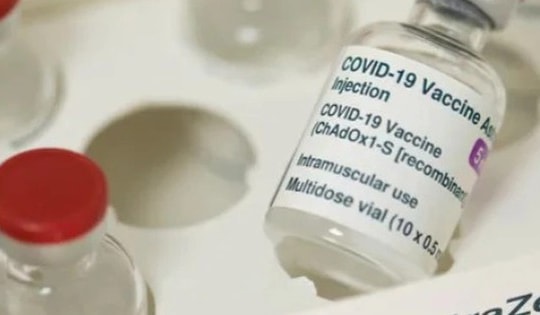Vaccine to prevent and treat Alzheimer's disease is coming soon
Scientists are testing vaccines as potential treatments for Alzheimer's disease, in an effort to control harmful immune activity linked to the now-common disease.
Despite decades of research into Alzheimer’s, scientists have yet to find a treatment that can significantly prevent or slow the disease. Now, scientists are investigating whether a radical new approach—a so-called Alzheimer’s vaccine—can change the course of the disease.

The researchers suggest that the disease may be the result of a poorly regulated immune response to an initial bacterial or viral infection, in which the body overproduces inflammation and beta-amyloid while underactivating cells that normally clear those proteins before they cause harm.
According to this theory, inflammatory signals to the brain stimulate the production of beta-amyloid proteins, which may have antimicrobial properties to destroy harmful invaders. However, when these proteins mistake healthy brain cells for bacteria, they aggregate into brain-damaging plaques. Meanwhile, the cells that normally clear beta-amyloid—microglia—are dysfunctional in Alzheimer's disease.
This idea is bolstered by evidence that people infected with certain viruses, including herpes viruses and potentially SARS-CoV-2, face a higher risk of developing Alzheimer's later in life.
Now, researchers are testing vaccines as a potential treatment for Alzheimer's, trying to retrain the immune system to fight the disease.
In theory, these vaccines would work by stimulating cells to clear beta-amyloid while also shutting down the immune cascade responsible for releasing the harmful protein. The vaccines could be used to help prevent Alzheimer’s and treat the disease once it has developed.
In two observational studies involving thousands of patients, scientists noted that bladder cancer patients who received the BCG tuberculosis vaccine had lower rates of Alzheimer’s disease over the next few years. That raises the possibility that the vaccine helps prevent Alzheimer’s, at least for the five years after vaccination.
BCG tuberculosis vaccine and Protollin vaccine have effects on Alzheimer's
Evidence that BCG is linked to a reduced risk of Alzheimer's disease and has long-lasting immune effects prompted Charles Greenblatt, professor of microbiology and molecular genetics at the Hebrew University of Jerusalem and leader of one of the observational studies, and his colleagues to test BCG as an Alzheimer's vaccine.
In a proof-of-concept study, scientists injected BCG into 49 healthy participants around the age of 65. Nine months later, the researchers found that the vaccination affected the levels of different types of beta-amyloid in the participants’ blood plasma. The findings suggested that those who received the BCG vaccine had a protective effect.
Now, BCG is being tested in a small clinical trial of 15 adults with mild cognitive impairment and mild to moderate Alzheimer’s disease to see how it affects measurable markers of the condition. But BCG isn’t the only immune-modulating shot being tested in Alzheimer’s.
Dr. Tanuja Chitnis, a professor of neurology at Harvard Medical School and Brigham and Women's Hospital, is leading the development of an Alzheimer's vaccine. Called Protollin, the nasal spray vaccine, first developed in 2004, is called an adjuvant, a substance that boosts the immune system.
In theory, Protollin may also make immune cells more responsive to bacteria and viruses, which are thought to increase the risk of Alzheimer's in the first place.
Current Alzheimer's drugs, such as aducanumab and lecanemab, deliver antibodies that specifically stick to and help clear amyloid plaques in the brain. However, the effectiveness of these drugs is controversial, and they can come with side effects, including brain bleeding, swelling, and atrophy. Protollin may avoid these side effects, but its safety has not yet been tested in large trials.
Several companies are developing Alzheimer's vaccines that target beta-amyloid directly. Vaxxinity's UB-311 is the furthest along in development, and its maker is preparing for late-stage clinical trials.
However, unlike approved antibodies, BCG and Protollin have a track record of safety, as they have been approved for other conditions or are components of other vaccines. Of course, beyond the safety of BCG and Protollin, the efficacy of these Alzheimer's vaccines remains to be proven.








